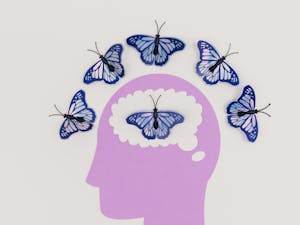In the epoch of globalisation where people are becoming more cosmopolitan, the question around national identity and patriotism are more pertinent than ever. Sports, particularly football, have become a reflection of a nation’s identity, bridging the gap between international borders and fostering a sense of shared identity. This article discusses how national sports, especially football, impact national identity and stimulate patriotism.
Sports as a Medium of National Identification
When you cheer for your national team or adorn the jersey with your country’s emblem, you’re not just supporting a sports team; you are expressing your national identity. Sports, in this case, act as a medium for national identification.
Also read : What are the strategies for preventing and managing sports-related burnout among athletes?
The concept of representing one’s nation in an international sporting event provides players and supporters alike with a unique sense of unity. The shared experience of victory or defeat cultivates solidarity among the people. This shared sentiment is often carried beyond the stadium, fostering a sense of belonging and collective identification with the nation.
Football, being the most popular sport globally, has been instrumental in this regard. The nationwide euphoria that ensues when the national team wins a significant match or tournament is palpable. Such moments help people identify with their national heritage and bolster their patriotism.
Also to read : How can athletes use sports analytics to improve their individual performance?
The Impact of Sports on Nationalism
Nationalism and patriotism have a complex relationship with sports. While some argue that sports enhance nationalism, critics suggest that it can lead to an unhealthy obsession with national superiority. However, the impact of sports on nationalism is undeniable.
International sports events, such as the Football World Cup or the Olympics, serve as global platforms where nations showcase their prowess and make a statement about their national identity. These events stimulate nationalism as they provide an opportunity for nations to demonstrate their strength and create a sense of pride among their citizens.
The emotional attachment people have with their national teams often extends beyond the realm of sports. It becomes a matter of national pride. The unity and passion displayed by players on the field resonate with the spectators, reinforcing their nationalism.
Sports and Social Cohesion
Sports also play a pivotal role in fostering social cohesion and unity within a nation. They have the power to bring people from diverse backgrounds, cultures, and political ideologies together, united by their shared love for the team or the sport.
For instance, during a football match, differences take a backseat, and the collective support for the team becomes the primary focus. This shared enthusiasm transcends socioeconomic boundaries and encourages social integration.
When players representing the nation perform on an international stage, they stand as a symbol of the country’s diverse yet unified identity. Their individual efforts contribute to the team’s success, much like the citizens of a nation contributing to its progress. This analogy strengthens the social fabric of the nation and promotes a sense of unity and shared identity.
The Power of Sports in Political Context
Sports and politics are often intertwined, with the former often serving as a tool for political expression. Governments understand the unifying power of sports and strategically use it to foster patriotism and national unity, especially in times of political unrest or societal discord.
Take, for instance, the hosting of international sporting events. Nations vie for the opportunity to host such events as they are a matter of national prestige. Successfully hosting an international event like the Football World Cup or the Olympics is not just a sporting achievement, but also a political one. It sends a strong message about the nation’s capabilities on a global scale.
Moreover, victories in sports can also serve as a distraction from political issues. A triumphant performance by a national team can shift the public focus from political controversies, at least temporarily. This has been a common strategy employed by various political regimes throughout history.
The Emotional Connection between Sports and National Identity
While the impact of sports on national identity is multi-faceted, the emotional connection it cultivates is profound. The thrill of watching your national team compete against others, the collective sigh when a goal is missed, or the shared jubilation when victory is achieved – these experiences stir powerful emotions among spectators.
These emotions are often associated with a sense of patriotism. When supporting their national teams, people aren’t just rooting for individual players; they are rallying behind their nation. This emotional bond between fans and their national teams enhances their sense of national identity.
In essence, sports serve as a mirror that reflects the nation’s strengths, dreams, and aspirations. They provide a platform where national identity is not just showcased but also strengthened and celebrated. The impact they have on national identity and patriotism is indeed profound and far-reaching.
Sports as Symbols of National Pride
Sports can serve as potent symbols of national pride. When a nation’s team competes on an international stage, the team itself often becomes a representation of the nation’s identity. The athletes, in their national jerseys, become embodiments of national symbols, reinforcing the connection between sports and national identity.
The national football team, for instance, elicits a sense of national pride among its supporters. Whether it’s the FIFA World Cup or the UEFA European Championship, these events captivate the nation’s interest and spark a surge of patriotism. The performance of the national team can significantly influence the mood of the nation. An exceptional performance or a victory can uplift the nation’s spirit, while a defeat can dampen it.
In South Korea, for example, the national football team’s performance in the 2002 FIFA World Cup, where they reached the semi-finals, significantly boosted national pride. This event also helped in shaping South Korea’s national identity, positioning it as a formidable force in international football.
Moreover, the national symbols associated with sports – the national flag, the anthem, the emblem – all contribute to the sense of national identity. When these symbols are displayed during sporting events, they foster a sense of belonging and evoke feelings of patriotism among the citizens.
Conclusion: The Profound Impact of Sports on National Identity and Patriotism
In conclusion, sports have a profound impact on national identity and patriotism. They act as a medium for national identification, fostering a sense of shared experiences and unity among the citizens. They also stimulate nationalism, providing an opportunity for nations to showcase their strength and create a sense of pride among their citizens.
Additionally, sports promote social cohesion within a nation, transcending cultural, political, and socioeconomic boundaries. They serve as potent symbols of national pride, with athletes becoming embodiments of national symbols. Moreover, the strategic use of sports in the political context demonstrates the power of sports to foster patriotism and national unity.
However, it’s crucial to note that while sports can foster national unity and patriotism, they should never be used to propagate unhealthy nationalism or a sense of superiority over other nations. It’s essential to maintain the spirit of sportsmanship and respect for all nations, regardless of the outcome of any sporting event.
The emotional connection between sports and national identity cannot be overstated. The shared experiences during international sporting events evoke powerful emotions among fans, fostering a strong sense of patriotism. As a reflection of the nation’s strengths, aspirations, and dreams, sports provide a platform where national identity is not only showcased but also celebrated.
In the era of globalisation, sports maintain their unique ability to ignite national pride and bolster national identity. Their impact on these areas is indeed profound, far-reaching, and worth acknowledging.











